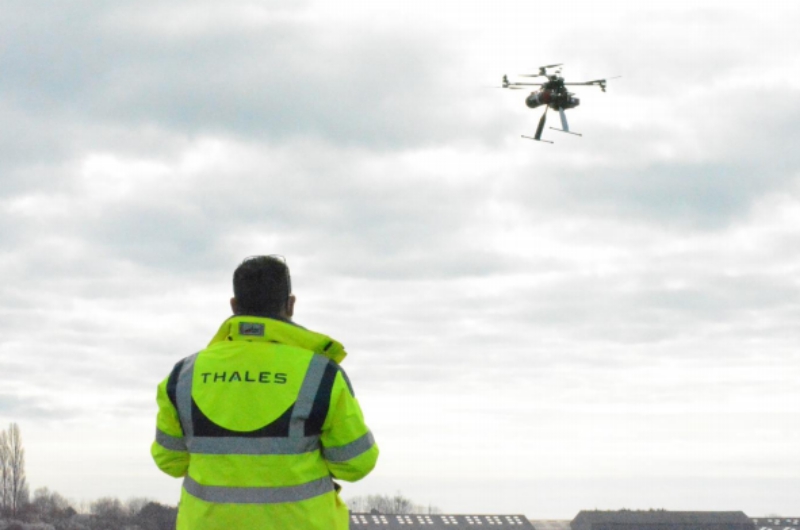The tests were organised to demonstrate the industrial and operational feasibility of this hydrogen drone, which offers enhanced performance characteristics while protecting the environment.
Drones used in professional applications need to combine operational efficiency with the highest levels of flight safety, with their range capabilities and endurance as key criteria. Various propulsion technologies already meet these criteria, but hydrogen fuel cells are a particularly effective way to increase the drone’s endurance due to the low mass and high energy density of hydrogen.
The new generation of drones powered by hydrogen fuel cells will be capable of flying significantly longer missions, which are not possible today. Ultimately, they will fly for up to 3 hours with a payload of 3 kg, meeting the needs of 90% of all sensitive site surveillance and industrial inspection applications.
The tests demonstrated the drone’s capacity to fly for at least 2 hours with a hydrogen fill time of no longer than 1 minute. As well as reducing time between flights, the hydrogen drone delivers uniform performance throughout each flight, which is not the case with battery-powered systems.
The fuel cell can be mounted on the drone in the field, and the drone is designed to offer the flexibility needed to quickly configure payloads for different types of missions.
For the demonstration flight, the ScaleFlyt Geocaging solution was installed on the drone to ensure regulatory compliance. This Thales solution combines expertise in robotics, security technologies and certified avionics systems to deliver highly reliable flight containment capabilities for drone operations. Developed with support from the French civil aviation authority (DGAC), ScaleFlyt Geocaging guarantees that the drone remains in a designated area throughout the flight.
“Hydrogen drone technology opens up new opportunities in applications such as surveillance of sensitive sites and military facilities. Equipped with ScaleFlyt operational safety technologies and integrated into Thales’s Security Digital Platform, hydrogen drones will be able to conduct complete missions drawing on high-reliability, affordable, easily deployable solutions.”
Emmanuel Guyonnet, Drone Programme Director, Flight Avionics, Thales.
About Drones-Center
Through its technical center and its expertise in the ArduPilot ecosystem, Drones-Center designs custom-made drones that meet the needs of very specific markets. As a payload integrator, Drones-Center offers technical, operational and regulatory support to manufacturers wishing to use this tool in their business applications. Since 2014, Drones-Center has successfully completed several projects, including large carrier drones, the FROG demonstrator, a radiometer drone, a paint design drone, and an automatic positioning inspection drone.
About Thales
Thales is a global leader in advanced technologies, investing in digital and “deep tech” innovations connectivity, big data, artificial intelligence, cybersecurity and quantum computing to build a confident future crucial for the development of our societies. The Group provides its customers businesses, organisations and governments in the defence, aeronautics, space, transport, and digital identity and security domains with solutions, services and products that help them fulfil their critical roles, consideration for the individual being the driving force behind all decisions.
Thales has 81,000 employees in 68 countries. In 2020 the Group generated sales of €17 billion.
About ZenT
ZenT is a young innovative company founded in 2016 specialized in environmental and digital Tech. ZenT develops new green hydrogen technologies to reduce carbon impacts for the transportation and digital sectors. With its green hydrogen drones and data centers, ZenT is one of the 300 solutions for the planet selected by the ChangeNow 2021 edition.
Source: Press Release

